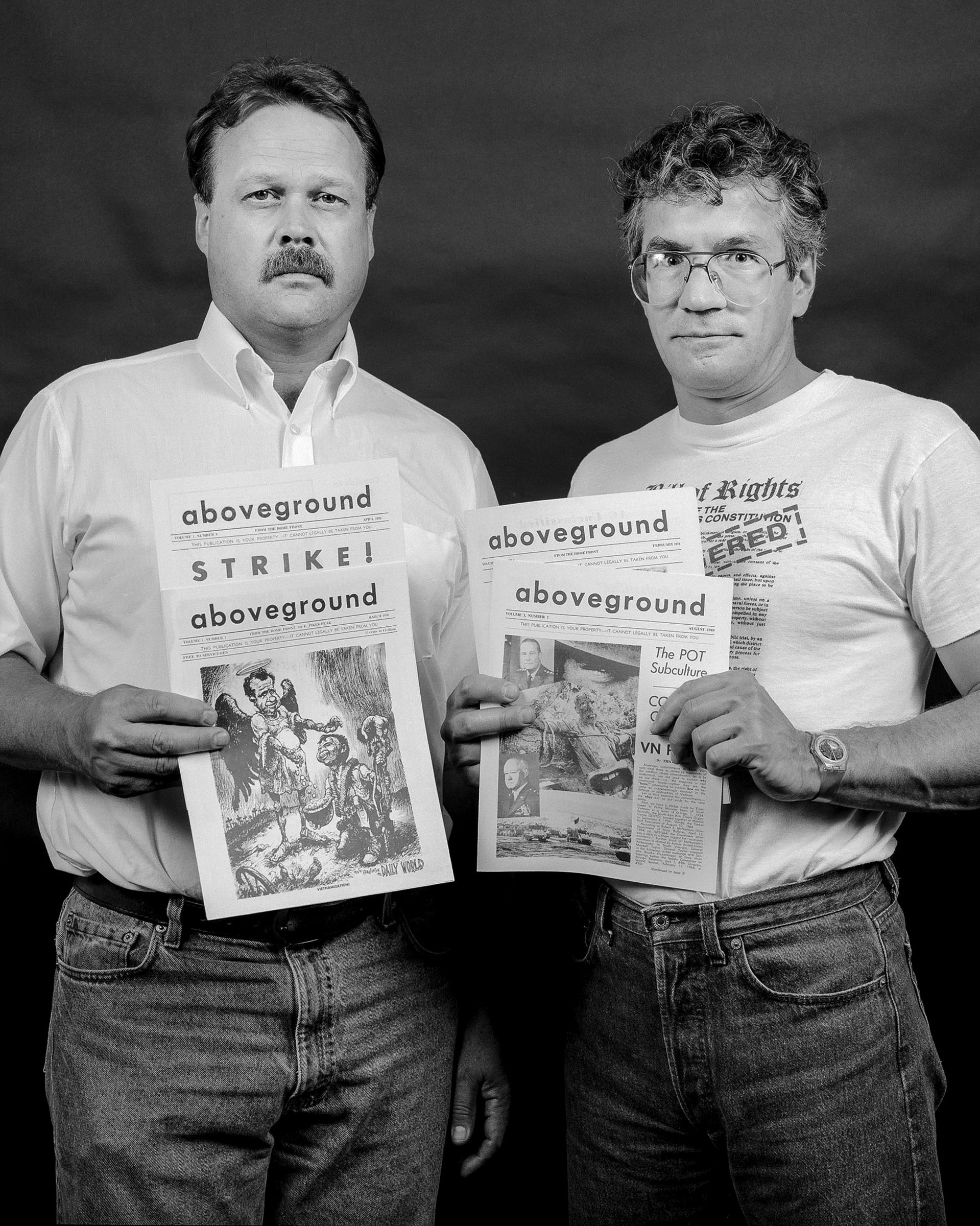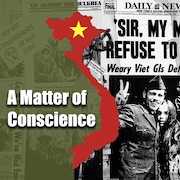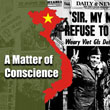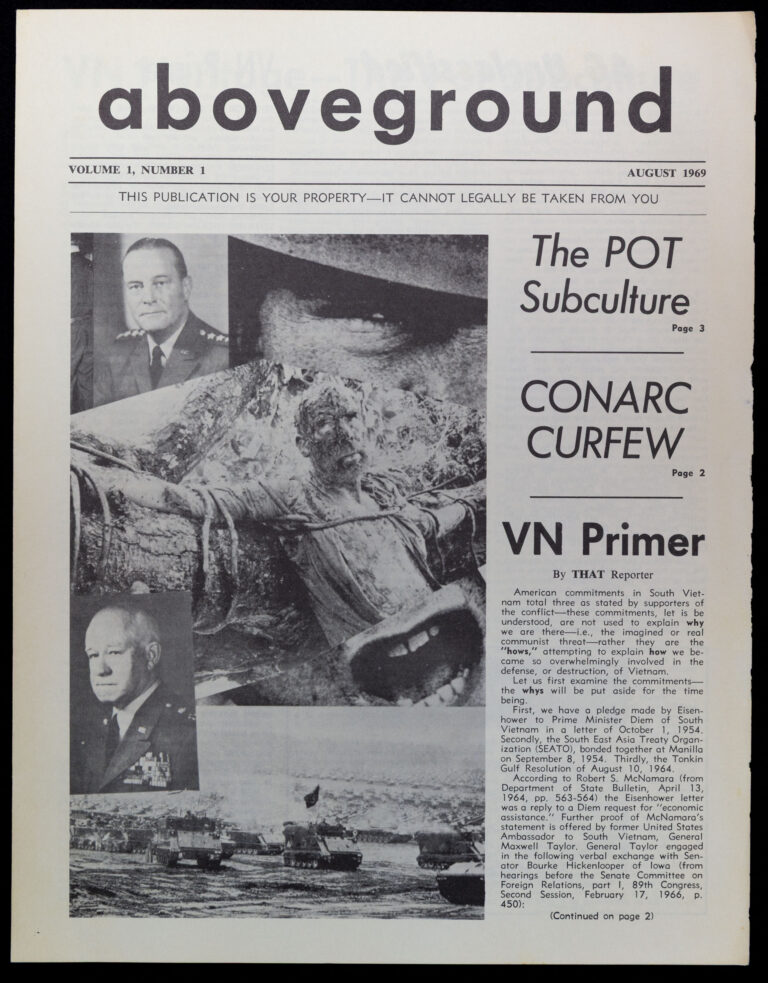
TOM: Curt and I had only known each other for one day in Vietnam and less than a day at Fort Carson in Colorado Springs when we decided to start a newspaper.
CURT: I was sent to the Fort Carson Army Hospital closed circuit radio station that Tom had been assigned to and basically given the job that he had once had, which was a staff announcer. Someone commented that there was someone else in the unit from the 10th PsyOp Battalion, and he told me who it was, and I remembered Tom because the day we met we had undertaken a sort of adventure together. But I remembered we had a lot in common — we’d gone through DINFOS (Defense Information School) together; he had a journalism background and I had a radio background, we both ended up in PsyOps and we were both sour-graping. The communication there was pretty amazing.
I had some copies of a battalion newspaper from Vietnam called Dimension, which it turns out Tom had started before I got there and that I had become editor of. So he was looking through those magazines and seeing the people he had been in Vietnam with and what had happened to them. It was like a continuation of what happened after he left. And in the course of talking about the war and our experiences and what are we doing here and what are we going to do about it, we thought let’s start a newspaper because there isn’t one here.
TOM: I think we were catalysts on each other.
CURT: I was intent upon showing up at Fort Carson and saying I quit.
TOM: Or being a conscientious objector.
CURT: Or making some kind of a major stink. I was pretty pissed about the whole thing and fresh off the boat. I was ready to go in there and do something very radical. I hadn’t really quite figured out what yet.
TOM: And I said, “Well Curt, if you’re going to become a CO, it’s really pretty meaningless. We should do something else. We’re at a hospital; once a year they maybe make us go out to the rifle range and fire a couple of shots, but otherwise we’re hardly even really in the Army.” I’m not sure who came up with the idea of actually doing a newspaper first, but it came up and once it came up I think we just hopped on that idea. We said, “Yeah, that’s it, a newspaper. We know how to do it, we’ve done it.”
CURT: So we immediately got into it. It was August 9th we got the first issue out. The name just came to me, “aboveground.” Someone was saying, “Hey you’re going to do an underground newspaper.” And I said, “No, we’re going to be totally above ground.” That’s how the name came about. The first issue we were not sure what level of commitment we wanted to get into, so the actual first issue we didn’t even put our names in. We called ourselves “this reporter” and “that reporter.” And then after we came out with that first issue, they figured out who we were pretty much straight away.
TOM: Within two days I think after we distributed it, they had us on the carpet. Military Intelligence. They summarily transferred us. We had been roommates and it was real easy for us to bat around ideas and put out the newspaper. In fact, we even had a little darkroom in our room.
CURT: We were industrious little investigative reporters; wrote some really good stories actually while we were there. We caught this general who was the commander of the post flying helicopters without a pilot’s license. When we were ready to run that one they sent the FBI around to see our printer down in Colorado Springs and basically threatened to shut him down. The printer wouldn’t print it.
TOM: They called us and he said we’re not going to print the paper. I said, why not? And he goes, “Well, the Army came in here and the FBI and they wanted proofs and this ‘n that and they wanted to see the thing and it was just too much of a hassle and we’re just not going to do it.” But there was a lot of press coverage about that incident and an editor and publisher of this paper in Littleton, Colorado, offered to print the newspaper for us. He said, “I disagree with what you guys are saying about the war, but I believe absolutely in your right to say it without interference from the FBI or from Military Intelligence. You have the First Amendment right to say that and I very much support that.”
Within I think about a month of us coming out with the first issue, in fact I think it may have even been the day before the second issue came out, they split us up. They transferred both of us out of the United States Army Hospital at Fort Carson, and they sent Curt up to Fitzsimmons Army Hospital in Denver 70 miles away, and they sent me over to a line artillery unit. We had almost a whole month to get out the next issue, but the process became a lot harder for Curt and I to coordinate. We got together a lot less frequently.
CURT: Yeah, there was a lot of driving.
TOM: And money became a concern. But for the third issue a woman that I ran into kept us going. Her husband had just been killed in Vietnam through friendly fire, and she donated enough money for one issue from the GI life insurance policy that she got. And the United States Servicemen’s Fund was the single biggest contributor.
CURT: We did stuff in the paper with curfews and issues that affected soldiers. And we found out about this plan for military interdiction in civilian activities, like big demonstrations and Kent State. Itwas code named “Garden Plot” and it had to do with Fort Carson soldiers being in a position of readiness to be dispatched anywhere.
TOM: That one we did run in aboveground, and at least a year later it made front page news. We scooped it by a year. Another story we never printed was after the first issue came out. A crazy sergeant I was working with up at the registrar section, a former Green Beret, was working at K-Mart at night in the sporting goods department just taking orders. What do you need? Well, come out by the back door and I’ll sell it to you for 20 bucks. You want that rifle? That costs $79.95, and I’ll sell it to you for 20 bucks or whatever. And he was just ripping it off from K-Mart and making 20 bucks. So anyhow he said, “Hey this is pretty cool this paper that you have. You want a story?” He goes, “You know that Gulf of Tonkin thing? I was in a Green Beret sapper team and we were sent up to blow up, with satchel charges and shit like that, and infiltrate and do sapper attacks on those PT bases there. We were there to provoke those PT bases, those PT boats. And we’d blow up other things in the vicinity so that those PT boats would go out and shoot up those destroyers, or at least fire some shots at those destroyers.” He was just such a wild bullshitter, freelance, seat-of-the-pants kind of a guy, I thought, oh yeah right. And of course later on that all came out in the Pentagon papers — and this is in August of 1969 that this guy said you ought to interview me.
Archived Material
Podcasts
No posts



